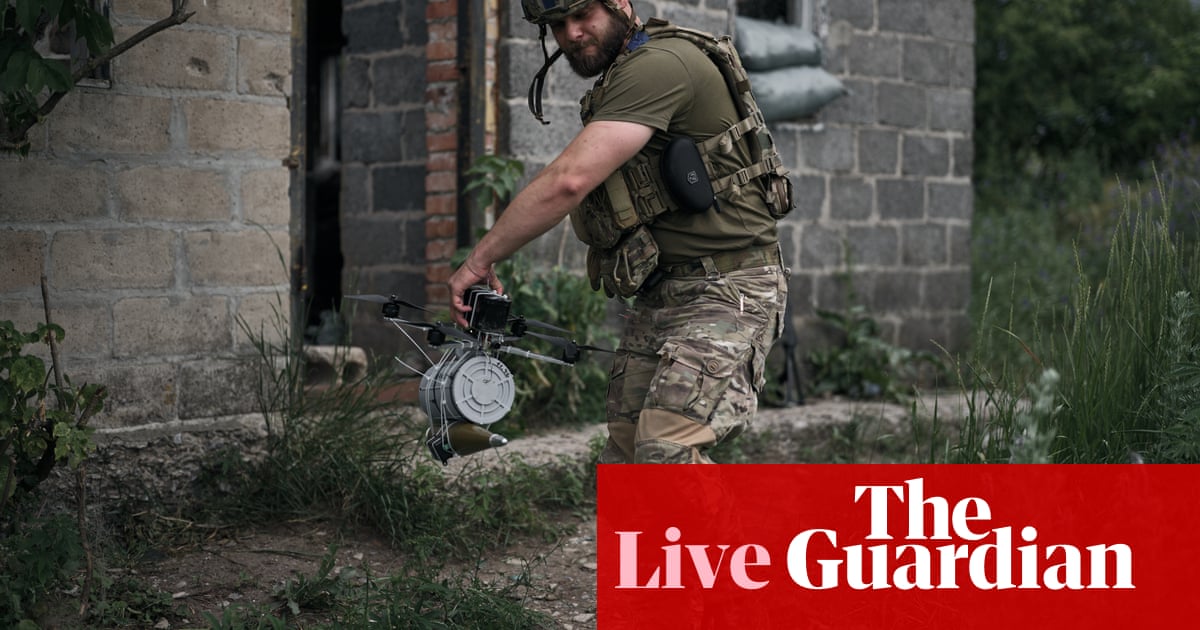For what it’s worth, Russia’sVladimir Putin said on Thursday he was ready to meet with Ukrainian counterpart Volodymyr Zelenskyybut only during a “final phase” of negotiations“so as not to sit there and divide things up endlessly, but to put an end to it”.
But his broader comments were not really conciliatory, and will do little to raise hopes of a negotiated settlement.
In the course of his briefing with foreign media, Putin made his customary false accusation that Zelenskyy is not Ukraine’s legitimate president.
Asked by AP about Russia condemning Israel’s strikes on Iran even as Ukrainian civilians are killed in attacks by Moscow, Putin responded thatRussia was targeting the country’s arms factories– despite a recent attack on a nine-story residential building, which saw several dead.
“The strikes were carried out against military industries, not residential quarters.”
Putin alsowarned Germany against delivering long-range Taurus missiles to Ukraine, saying that it could draw it into a direct military conflict with Russia but won’t help stem Russian advances, AP said.
“Our troops are advancing along the entire line of contact,” he said, warning Ukraine to accept Russia’s terms for a peace deal or face tougher conditions in the future. “If they fail to agree, the situation could change for the worse.”
OnNato, he added:
“We do not consider any Nato rearmament to be a threat to the Russian Federation, because we are self-sufficient in terms of ensuring our security.”
CourtingTrump, he praised his push for peace in Ukraine, seconding the American leader’s repeated claims that the 3-year-old conflict wouldn’t have started if he had been in the White House in 2022, AP noted.
“If Trump had been the president, the conflict indeed might not have erupted.”
US presidentDonald Trumphad originally promised to stop theRussianinvasion ofUkrainewithin 24 hours (or before!) of taking the office on 20 January.
Well, it’s been 149 days since then – and 100 days since Ukraine accepted the most recent US-backed offer of an unconditional ceasefire. Russian aggression, however, continues unabated.
Ukraine’s foreign ministerAndrii Sybihamarked the occassion, saying “it has been exactly 100 days since Russia has been rejecting this basic first step towards peace.”
When Nato meets in The Hague for its annual summit next week, Ukraine’sVolodymyr Zelenskyywill be hoping Trump sticks around long enough for that item to make it on to the agenda.
European leaders may offer continued backing for Ukraine, but with the Israel-Iran situation evolving by the hour, it’s tough to know what will happen by the end of the day – never mind next week.
Whatever happens, I will bring you the latest here.
It’sThursday, 19 June 2025, it’sJakub Krupahere, and this isEurope Live.
Good morning.
